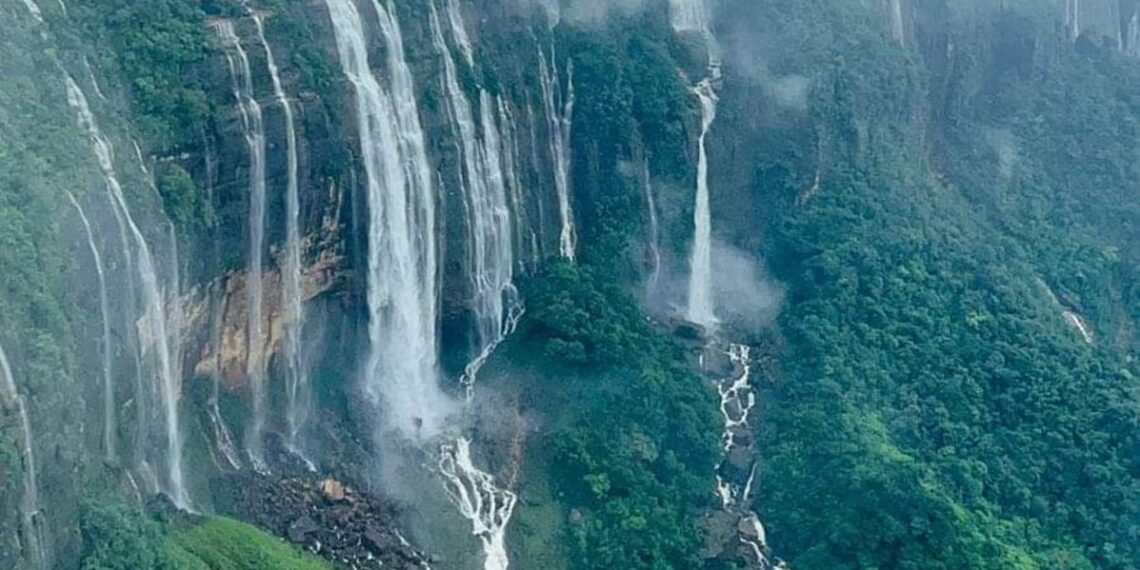Shillong: In a move to preserve its fragile environment, the traditional authorities of Meghalaya’s famed Sohra region have imposed sweeping restrictions on tourist activity, including a first-of-its-kind directive targeting YouTubers and vloggers who reveal lesser-known natural spots online.
The Ka Hima Sohra, the indigenous governing body overseeing the scenic Mawkdok-Sohra belt, has banned picnicking, open-air cooking, and unauthorised roadside gatherings following a spike in littering and waste dumping by visitors.
Scenic locations that once drew crowds for their untouched beauty are now facing the brunt of unchecked tourism — beer bottles, food wrappers, and plastic waste have become a common sight.
Deputy Syiem Maremdor Syiem, a senior member of Ka Hima Sohra, said the measures are necessary to safeguard the region’s ecological integrity.
“Picnic parties, especially those without regulation, have led to significant environmental damage. These restrictions are a step toward restoring balance,” he said.
The new rules prohibit tourists from consuming food or alcohol in public areas without prior permission from the local village dorbar.
Vehicles entering the region must now carry waste bags and have dustbins onboard to ensure proper waste collection.
Dumping trash near roads, fields, or viewpoints will be treated as a punishable offence.
Camping, too, is being brought under control. Night stays will be permitted only at designated campsites.
Any off-grid camping must be organised by certified groups recognised by local authorities.
In an added measure to protect trekking trails and remote eco-sensitive spots, hiring local guides has been made mandatory for all trekking activities under the Ka Hima Sohra jurisdiction.
This, officials say, is to curb reckless trekking that leads to both environmental degradation and safety risks.
Significantly, digital content creators, vloggers, and YouTubers will now need prior permission to film or promote ‘hidden’ or lesser-known natural sites.
ALSO READ: Study: Over 2.5 million lives saved globally by COVID-19 vaccines between 2020-24
The rule is part of an effort to prevent mass tourism from overwhelming fragile, undiscovered areas.
“Revealing unregulated spots on social media leads to overcrowding and unsustainable footfall,” said Alan West, president of the Rural Tourism Forum.
“These new measures are not anti-tourist — they’re pro-preservation. If we don’t act now, we risk destroying the very magic that brings visitors here.”
The region of Sohra, formerly known as Cherrapunjee, is one of Meghalaya’s most iconic tourist destinations, celebrated for its waterfalls, limestone caves, and rich biodiversity.
Local leaders say the intent behind these measures is to promote sustainable tourism that respects both nature and community.















